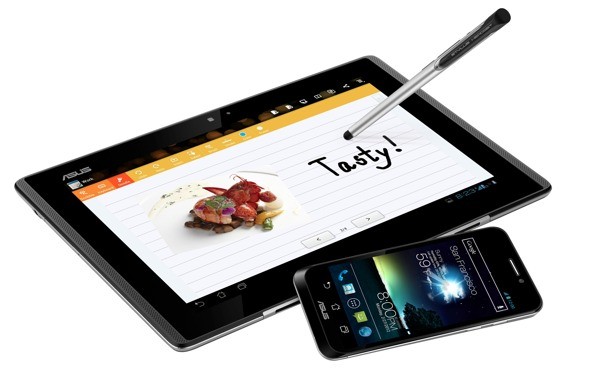Asus may soon be the next Windows Phone 8 handset OEM partner for Microsoft, according to a new report from the Wall Street Journal today. And the company isn’t just looking to stick the operating system in any old device; per the report, it’s looking specifically at creating a version of its docking, Android-based smartphone and tablet combo, called the Padfone, using Microsoft’s OS.
The news of a Windows 8-powered smartphone comes via Asus corporate vice president of mobile communication products Benson Lin, who said in an interview with the WSJ that he believes the smartphone/tablet hybrid concept “makes sense for Windows 8,” and that while there’s no firm timeline on release, the company is definitely “interested in making Windows phones.”
While the WSJ article doesn’t clarify whether such a device would be built on Windows 8, Windows Phone 8 or a combination of both, it seems likely that Asus would work with the mobile version of the OS, provided it can be made to run on larger-screen tablet devices as well as smartphones. Microsoft has yet to show Windows Phone 8 powering a slate, though, and it is possible such a device could use some kind of hybrid approach that combines Windows RT and the smartphone-focused WP8.
Beyond Windows phones, Asus is also engaged in talks with U.S.-based mobile network providers to bring its existing smartphone hardware stateside. The computer company is trying to make sure it has a solid foothold in mobile as consumer attention increasingly turns towards mobile devices, and while the Android-based Padfone is already two generations old, and sells in countries across the European and Asia Pacific markets, the company has yet to make its presence felt in the crowded North American mobile space.
Asus has a history of attempting unusual routes to enter the U.S. smartphone market – it attempted a partnership with Garmin previously for smartphones with powerful built-in navigation elements, but the rise of sophisticated navigation apps, including the completely free Google Maps ending up causing that arrangement to stall.
Could a hybrid tablet/smartphone tablet be the key to lighting the fire under Asus’ progress in the west? I’m inclined to say no, and I’m especially skeptical that such a device based on Windows 8 will be any kind of breakaway hit with consumers. Essentially, it’s like taking a niche product with the Padfone and putting it into an even smaller box thanks to the use of Windows Phone 8, which itself has yet to really prove demand. Still, for a company clearly desperate to make the leap from traditional to mobile computing, I’m sure any plan looks pretty good right about now.
